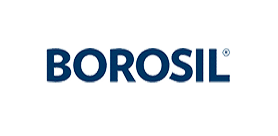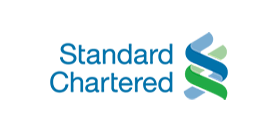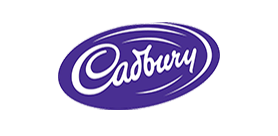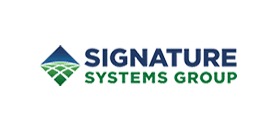Supply chain management is the spinal cord of manufacturing operations, and ERP is the central nervous system. Using an ERP system in supply chain management allows you to streamline everything from raw materials to delivery of the final product, making it an essential tool. Let’s understand how!
Role of an ERP System in Supply Chain Management
An ERP system is the central hub where you manage every aspect of your business. It integrates all your essential business functions into one unified system and shared database. This makes it easier to manage and gets everyone on the same page. Everyone from the CEO to the support staff is looking at the same real-time data. Let’s look at an example of how this works:
In a furniture company, the sales team closes a deal for 100 office chairs and enters it into the ERP. This creates a domino effect, triggering further actions.
The warehouse system is auto-updated. It immediately flags that there are only 80 office chairs available, and 20 are on backorder.
The production module sees the increased demand and can adjust its manufacturing schedule accordingly.
The Finance module automatically logs the sale, prepares an invoice for the 80 office chairs that can ship now, and accounts for the future revenue from the back-ordered 20.
The customer service team can see the exact status of the order in real time. They can update the customer on shipping status and more with accuracy.
Every team knows what others are doing and can seamlessly hand over the tasks.
Benefits of ERP in Supply Chain Management
Enterprise resource planning and supply chain management are the perfect combo that elevates your business from being reactive to proactive. While the benefits of ERP in supply chain management are uncountable, here are the major ones that help you maximize the value of your services:

Total Visibility
A CEO can log into an ERP and see what’s happening in the company on a single dashboard. Everything from the sales on that day to current inventory levels across the globe, production output, and cash flow is available in one place. This allows management to make quick and informed decisions based on real-time data.
Improved Agility & Resilience
What happens when a shipping lane gets blocked or a supplier factory shuts down due to a disaster? With traditional systems, it takes days to manage. An ERP system in supply chain management allows you to quickly react to rapid shifts. You can immediately see which orders are affected, what inventory is stuck in transit, and which alternative suppliers are available. This agility allows you to avoid disruptions.
Increased Collaboration
An ERP literally breaks down the walls created by having multiple systems and brings everyone on the same page. Everyone from the production to the sales team can collaborate and work towards the same goal. This collaboration can even extend outside the company, with suppliers and key customers given access to specific portals within the ERP to share information.
Data-Driven Decision Making
Data is the foundation of strategic decision-making, and an ERP in supply chain management brings it together in one place. You can analyze which products are most profitable, which sales channels are most effective, and which processes have bottlenecks. Make every decision backed by hard, reliable data.
Superior Customer Experience
In the end, all of the above benefits of ERP in supply chain management lead to one thing, which is happier customers. Orders are accurate. Deliveries are on time. Communication is clear. Today, customer satisfaction is the biggest differentiator, and ERP allows you to fulfill that commitment.
Use Cases of an ERP System in Supply Chain Management
An ERP system benefits every component of the supply chain. Here are some use cases of how it works:

1: Procurement & Sourcing
ERP software helps you manage the entire procurement process from evaluating suppliers to tracking orders.
Automated Reordering: You can set a threshold for reordering. The ERP will monitor stock levels and when it notices a particular raw material has dipped below the threshold, it’ll automatically generate a purchase order and send it to the approved supplier. This prevents stockouts that halt your entire supply chain.
Supplier Management: An ERP system tracks supplier data on aspects like delivery time and quality and creates scorecards for each of them. This answers your questions, like “Which supplier is the best?” and allows you to negotiate better deals and partner with the most reliable suppliers.
Strategic Sourcing: You can identify trends by analyzing historical purchase data within an ERP. Maybe buying a certain component in bulk in January is much cheaper than buying it quarterly. This allows you to make better decisions for cost savings and increasing efficiency.
2: Inventory Management
Inventory management is like walking on a tightrope for both the manufacturing and retail industries. If you order too few supplies, stockouts are right on the horizon. And ordering more to be on the safer side can tie up cash and lead to overstocking. ERP in supply chain management helps you get it just right.
Real-Time Visibility: This is the fundamental benefit of ERP. An ERP gives you a live, accurate count of every single item you own, whether it’s in a warehouse or on a store shelf. You don’t have to manually count everything or rely on spreadsheets.
Demand Forecasting: An ERP system can forecast future demand by analyzing historical data and past trends. It can tell you when to ramp up inventory for key raw materials. You can be proactive with your inventory management.
Warehouse Optimization: Many ERP systems have warehouse management systems (WMS) embedded in them. The WMS module’s path optimization feature tells workers the most efficient path to take through the warehouse to pick items for an order. It can also manage inventory using methods like FIFO (First-In, First-Out).
3: Production
The factory floor is like the heart of operations in manufacturing, and an ERP system ensures it beats in rhythm with the rest of the operations. An ERP provides multiple features for production planning and scheduling.
Production Planning: This module takes demand planning from the sales module and raw material availability from the inventory module to create a structured production schedule.
Material Requirements Planning (MRP): This is a core function within the ERP. Once the production schedule is set, the MRP module calculates exactly what raw materials are needed and when. It monitors inventory and auto-triggers purchases during shortfalls to keep production running.
Quality Control: You can log quality checks into the ERP. If a specific batch of products shows a high defect rate, the system can trace it back to the exact batch of raw materials used or the machine it was processed. You’ll have a clear idea where the problem lies.
4: Order Management & Fulfillment
An ERP system in supply chain management connects you with your customers with seamless order management.
Automated Order-to-Cash Cycle: An ERP automates the entire process, right from when an order comes in. It checks credit, verifies inventory, sends a pick list to the warehouse, generates a shipping label, creates an invoice, and tracks payment. Less manual work and fewer chances of human error.
Transparent Communications: ERP tracks the order’s journey from ‘processing’ to ‘in warehouse’ to ‘shipped’. Even the customers track their orders through the customer portal.
5: Logistics
As simple as getting a product from A to B seems, it can be complex. An ERP in supply chain management helps to simplify this complexity.
Route & Freight Optimization: An ERP’s logistics module can help plan the most cost-effective shipping routes. It can also help consolidate shipments.
Carrier Integration: ERP systems can connect directly with the systems of major shipping carriers like FedEx, UPS, or DHL. This allows for label printing, automated tracking updates, and easy comparison of shipping costs and delivery times.
Implementing an ERP System in Supply Chain Management
An ERP is not a plug-and-play solution. Implementing it can be a major undertaking that may require you to change how your company operates.
Cost & Complexity: ERP implementation requires careful planning, data migration from old systems, and process re-engineering. There’s also a cost involved, and the exact number depends on multiple factors. You can get an estimate of how much an ERP will cost you by reading our guide on ERP pricing.
Change Management: The biggest hurdle is often human. Employees are used to their old processes. Getting everyone trained on and willing to adopt a new, unified system requires strong leadership and a clear communication of the benefits.
The Next Generation of ERP in Supply Chain Management
The ERP tech space is not standing still. The next evolution is already here, and it’s making ERPs even more effective.
AI & ML: AI tools like NavAI are taking demand forecasting to the next level, analyzing complex patterns to predict what customers will want with uncanny accuracy. ML enables predictive maintenance by identifying which machine is likely to fail.
Internet of Things (IoT): Sensors on shipments can constantly report their location and temperature, ensuring sensitive goods are not spoiled. Similarly, sensors on machines can feed performance data directly into an ERP, allowing it to work on physical data.
Blockchain: For supply chains that require extreme security and traceability, like pharmaceuticals or luxury goods, blockchain technology can be integrated with an ERP to create an unchangeable, transparent record of a product’s journey from origin to consumer.
Summary
Speed, efficiency, and customer satisfaction are the currencies of success today, and an ERP is the most valuable player.
If you want to implement an ERP system in supply chain management, we can help you out. Navsoft has over 25 years of experience in helping businesses achieve their objectives through technology.
From selecting the right ERP vendor to implementing and integrating it in your organization, our ERP experts provide everything you need under one roof.
Book a consultation with our experts to kickstart your ERP project.
FAQs
What role does ERP play in supply chain management?
An ERP system acts as the central nervous system for your entire supply chain. It connects all the disparate parts of your business, from a sales order being placed to the raw materials needed for production and the final delivery to the customer. This integration provides a single, unified source of truth, leading to increased efficiency and smarter decision-making. Ultimately, ERP helps you move from a reactive approach to a proactive one.
What are ERP systems used in supply chain management?
ERP systems are incredibly versatile tools used across the entire supply chain. At a high level, they are used for everything from managing procurement and sourcing to optimizing inventory, streamlining production, and handling order fulfillment and logistics. For instance, in procurement, an ERP can automate reordering and help you strategically source materials. In inventory management, it provides real-time visibility and forecasts demand. On the production floor, it schedules manufacturing and calculates material requirements. Finally, for order management, it automates the entire order-to-cash cycle, ensuring accuracy.
How does an ERP system improve inventory management and prevent stockouts?
An ERP system gives you real-time visibility into your stock levels across all locations. By analyzing historical sales data and market trends, an ERP’s demand forecasting capabilities can predict future needs with incredible accuracy. This allows you to proactively adjust your inventory levels, ensuring you have just enough stock to meet demand without over-ordering.
Can an ERP system help a small business with its supply chain?
Absolutely! While often associated with large corporations, an ERP system is a game-changer for small businesses looking to scale efficiently. It helps by automating many of the manual tasks that often bog down small teams, such as creating invoices, tracking inventory in spreadsheets, or coordinating between sales and production via email.
What is the difference between ERP and SCM software?
SCM (Supply Chain Management) software is a specialized tool designed to optimize specific parts of the supply chain, such as logistics or inventory. An ERP (Enterprise Resource Planning) system, on the other hand, is a much broader, all-in-one solution. It encompasses not just the supply chain but also other core business functions like finance, human resources, and customer relationship management.





















